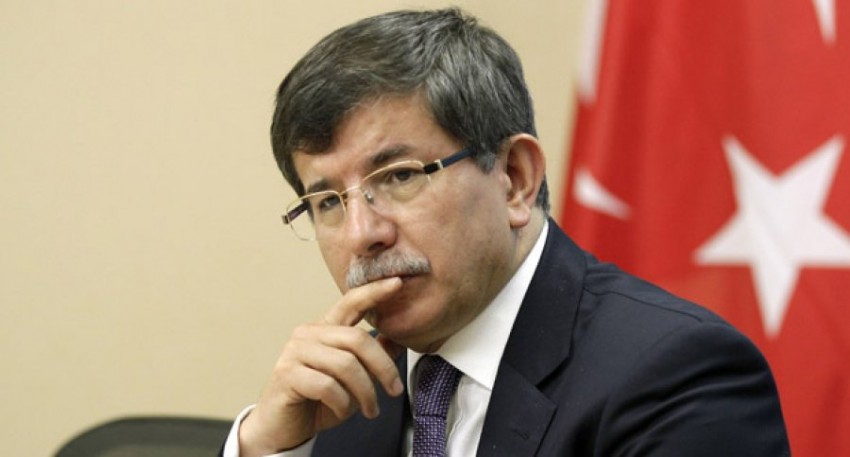by Burak Bekdil
The new constitution “will emphasize Islam and faith in Allah.” — Abdulkadir Selvi, pro-government columnist.
“We are a Muslim country. That is why we need a religious constitution,” said Ismail Kahraman, Speaker of Turkey’s Parliament. He lamented that, unlike in other Middle Eastern countries, the word Allah did not appear in the current version of the Turkish Constitution even once.
“The chaos in the Middle East is the result of politics instrumentalizing religion.” — Kemal Kilicdaroglu, leader of the opposition Republican People’s Party.
“One cannot be secular and Muslim at the same time.” — Turkish President Recep Tayyip Erdogan.
The Speaker of the Parliament is no ordinary office in Turkey. The speaker comes second in the state protocol only after the president (and even before the prime minister). Such is the seat occupied since November by Ismail Kahraman, an MP from the ruling Justice and Development Party (AKP) of President Recep Tayyip Erdogan.
Along with Erdogan, former president Abdullah Gul and eight AKP heavyweights (mostly cabinet ministers) Kahraman comes from the ranks of the National Turkish Student Union (MTTB in its Turkish acronym). Another MTTB bigwig, Huseyin Velioglu, later formed what became the militant Islamist group, “Turkish Hizbullah.” Especially between 1965 and 1980 when a military coup administration dissolved it, the MTTB operated as the youth organization of Turkish political Islam. Kahraman, in late 1960s and early 1970s, was MTTB’s president.
In 1969 Kahraman publicly campaigned against funeral services to be held for Imran Oktem, then president of the Court of Appeals and a well-known anti-Islamist judge. When, finally, a mufti agreed to have the service, MTTB militants attacked the funeral.
Also in 1969, MTTB members attacked a left-wing protest rally and stabbed two students to death.
When, in the late 1990s, Necmettin Erbakan, the founder of political Islam in Turkey, became the country’s first Islamist prime minister (in a coalition government with a center-right party), Kahraman was appointed as Minister of Culture. He immediately curbed the budget appropriations for the state opera and ballet house and rechanneled the funding toward a mosque, and banned alcohol consumption at his ministry’s recreational premises.
His oath as parliamentary speaker requires his full loyalty to the “supremacy of law and to the democratic and secular republic…” But his public speech on Apr. 26 was totally against both his own oath of office and the constitution of the country where he serves — presumably — as an unbiased parliamentary speaker.
“We are a Muslim country,” he said. “That is why we need a religious constitution.” And not just that. Kahraman lamented that, unlike in other Middle Eastern countries, the word Allah did not appear in the current version of the Turkey’s constitution even once. So, he asked: “Why should we, as a Muslim country, distance ourselves from religion?”
His words caused a small political explosion in Ankara, with politicians from the opposition rushing to condemn him and secular Turks to protest him — and to get tear gas and water cannons from the police. The main opposition leader, Kemal Kilicdaroglu of the Republican People’s Party, put it plainly: “The chaos in the Middle East is the result of politics instrumentalizing religion.”
Although both President Erdogan and Prime Minister Ahmet Davutoglu denied any AKP plan to remove secularism from the new constitution that their specialists are now drafting, Kahraman’s abrupt call for a religious constitution once again revealed Turkey’s old political fault-line, now giving signs of shaking. This is a decades-old political war between the Turks who see the future of their country in the Western civilization, including a secular constitution, and those who insist that Muslim Turkey belongs to the Middle East — including, as Kahraman pointed out, a religious charter that contains the name Allah.
According to Abdulkadir Selvi, a prominent pro-government columnist, the new constitution “will emphasize Islam and faith in Allah.”
In reality, Erdogan and Davutoglu are right to be cautious. Turkey does not need to remove the principle of secularism from its constitution. In Turkey’s poor democratic culture, a constitution is one thing and adherence to constitutional principles is another. Despite its articles strongly defending secularism and banning religion in political life, Turkey, under the AKP’s 14-year-long rule, has largely deviated from secular administration toward an authoritarian, pro-Islamist system with the ruling elite visibly breaching the constitution, including the parliamentary speaker himself.
Erdogan often defines his understanding of secularism as the state standing at an equal distance to all or no faith. In principle, he is right. He expressed that view after Kahraman’s controversial lines. But just saying this does not make him a secular politician. A recent ruling from the European Court of Human Rights (ECtHR) was the best proof that Erdogan’s Turkey failed in fulfilling even his own definition of secularism (that the state is at an equal distance to all religious faith).
The ECtHR condemned Turkey for discriminating against members of the Alevi (Muslim) religious minority, by failing to grant their places of worship the same status and advantages as those of other faiths (Sunni Muslim). Alevis, who draw from Shiite, Sufi and Anatolian folk traditions, account for about 15-20% of Turkey’s 79 million people. Most Sunni Muslims view Alevis as heretics.
A panel of seven judges at the Strasbourg-based court ruled against Turkish courts, which had said that the Alevi prayer places (cemevis) were not religious sites. The Turkish ruling was based on an opinion from the Turkish religious authority stating that the Alevi faith was not a religion. A summary of the ECtHR’s ruling read: “The court rules that the plaintiff foundation was subjected to differing treatment, without objective or reasonable cause, and the method of exemption from payment of electricity bills for religious sites in Turkish law was enacting discrimination on the basis of religion.”
In a speech some years before he came to power Erdogan said: “One cannot be secular and Muslim at the same time.” Back then, at least he was talking more honestly.
Burak Bekdil, based in Ankara, is a Turkish columnist for the Hürriyet Daily and a Fellow at the Middle East Forum.











